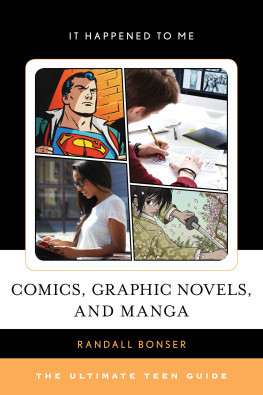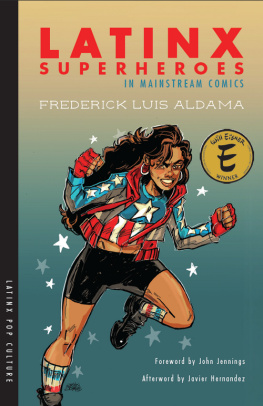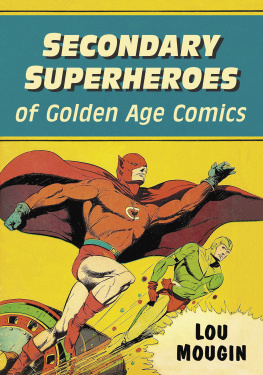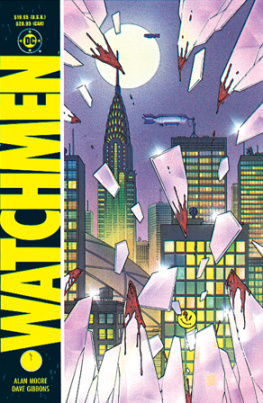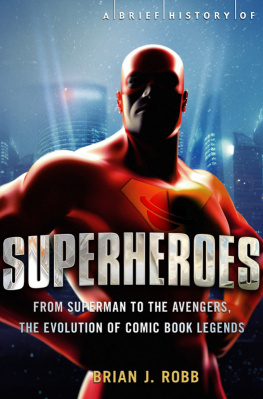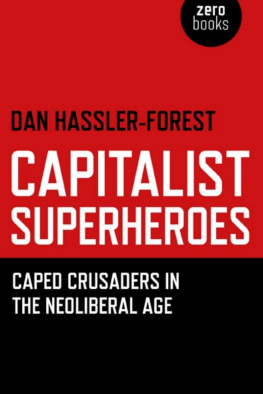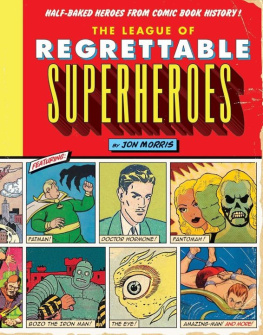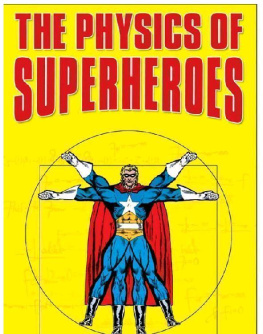
WAR, POLITICS
AND SUPERHEROES
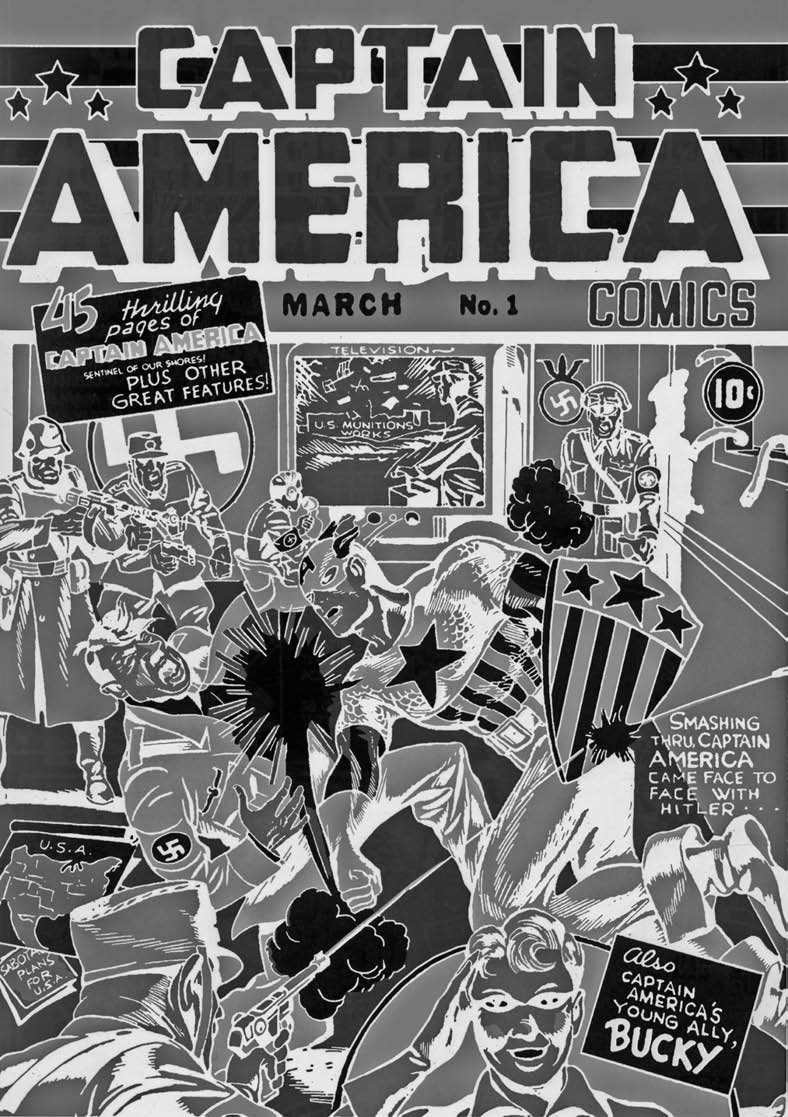

WAR, POLITICS
AND SUPERHEROES
Ethics and Propaganda
in Comics and Film
Marc DiPaolo
McFarland & Company, Inc., Publishers
Jefferson, North Carolina, and London
Frontispiece:The cover of the very first issue of Captain America.
It was released by Timely Comics in December of 1940, a year before the U.S. officiallyentered World War II. The comic depicts Captain America a creation of Jewishcomic book creators Joe Simon and Jack Kirby punching out Adolf Hitler.
LIBRARY OF CONGRESS CATALOGUING-IN-PUBLICATION DATA
DiPaolo, Marc.
War, politics and superheroes : ethics and propaganda in comics and film / Marc DiPaolo.
p. cm.
Includes bibliographical references and index.
ISBN 978-0-7864-4718-3
softcover : 50# alkaline paper
. Superhero comic books, strips, etc. History and criticism. 2. Comic books, strips, etc. Political aspects. 3. Comic books, strips, etc. Moral and ethical aspects.
4. Superhero films History and criticism. 5. Propaganda in motion pictures.
6. Motion pictures Moral and ethical aspects. 7. Superheroes
United States History 20th century. I. Title.
PN6714.D53 2011
741.5' 352 dc22 2011004691
BRITISH LIBRARY CATALOGUING DATA ARE AVAILABLE
2011 Marc DiPaolo. All rights reserved
No part of this book may be reproduced or transmitted in any formor by any means, electronic or mechanical, including photocopyingor recording, or by any information storage and retrieval system,without permission in writing from the publisher.
Cover art by Mark Durr (based on the spoof of
Shepard Faireys HOPE poster in the 2010 film Iron Man 2) Manufactured in the United States of America
McFarland & Company, Inc., Publishers
Box 6, Jeerson, North Carolina 28640
www.mcfarlandpub.com
For Brian
This page intentionally left blank
Table of Contents
Acknowledgments
Preface
Introduction: Are Superheroes Republicans? On The Avengers , Star Trek , and Watchmen
ONE. Batman as Terrorist, Technocrat and Feudal Lord
TWO. Wonder Woman as World War II Veteran, Feminist Icon, and Sex Symbol
THREE. Spider-Man as Benedict Arnold, Objectivist, and Class Warrior
FOUR. The Punisher as Murderous Immigration Officer and Vietnam War Veteran
FIVE. Superman vs. Ronald Reagan and the Ku Klux Klan
SIX. The Special Relationship: Britain and America in James Bond, Doctor Who, and Hellblazer
SEVEN. Tortured Consciences: Jack Bauer, the Invisible Woman, and George W. Bushs America
EIGHT. Gay Rights, Civil Rights, and Nazism in the X-Men Universe
NINE. In Brightest Day, in Darkest Knight: President Obama vs.
the Zombie Apocalypse
Chapter Notes
Bibliography
Index
vii
Some people can read War and Peace and come away thinking its a simple adventure story. Others can read the ingredients on a chewing gum wrapper and unlock the secrets of the universe. Gene Hackman, as Lex Luthor, in Superman: The Movie (1978) Acknowledgments
COMIC BOOK STORE CUSTOMER: Do you think that Superman is a Republican?
COMIC BOOK STORE PROPRIETOR: No way! Hes against the death penalty; he asked the U.N.
to let him rid the world of all nuclear weapons in Superman IV; hes married to a feminist reporter; his archenemy is Lex Luthor, a billionaire arms dealer and Wall Street executive; and his father was a major environmentalist on Krypton.
CUSTOMER: But he wears the American flag as a costume! Hes a patriot who believes in
Truth, Justice, and the American Way. Democrats hate patriotism, hate the American flag, and believe in the French Way.
PROPRIETOR: Democrats dont all hate America. A lot of modern-day ones do, but other Democrats love America, and criticize it a lot because they love it. And JFK
and FDR Democrats certainly didnt hate America. At the very least, Superman is an FDR Democrat, if not a Jimmy Carter Democrat. He sure as hell isnt a Reagan Republican.
CUSTOMER: Well, Captain America has to be Republican at least.
PROPRIETOR: Are you kidding? Hes a bigger pinko than Superman!
Conversation overheard in now defunct Staten Island comic book store Alternate Realmin the spring of 1998.
After spending years of my life writing about serious literature, including the works of Jane Austen, Dante Aligheri, and British and American Romantic writers of the 18th and 19th centuries, it has been an enormous pleasure to turn the critical eye that I normally reserve for high art to the comic books and fantasy films that I have been a lifelong fan of. The result, I believe, is a work that combines the enthusiasm and occasional subjective tastes of a superhero devotee with the kind of objective, nuanced cultural criticism normally reserved for purely academic works. In a sense, this book is intended to be a more sophisticated version of the same kind of conversation that one might observe taking place between comic book fans, either in specialty stores, or in on-line chat rooms, or in articles written for websites like Aint it Cool News, only those conversations tend to be a bit too acrimo-nious, evaluative, trash-talk-filled, bigoted, and trivia-centric for my taste. The slang term
meh is often overused as a substitute for intelligent conversation, and theres also a lot of discussion about who would most likely win in a fight between Spider-Man and Wolverine or between Superman and the Hulk. The exchange between a comic book store owner and a customer quoted above is an unusually good example of such a conversation. Most are far less interesting. But that particular conversation raises an issue that is of central concern to me. The question of what kinds of political values superheroes represent, and what kind ix
x
Acknowledgments
of values they instill in the adults who grew up reading superhero comic books and watching cartoons and films is the underlying concern of this book. What kind of heroism do superheroes represent, and is it a form of heroism worth emulating?
As I put the finishing touches on this book, I need to thank those who have granted me the opportunity to write it. First of all, the book is, in large part, an outgrowth of the research I did as a participant in two National Endowment for the Humanities Summer Seminar Grants for College Teachers. The first, Adaptation and Revision: The Example of Great Expectations, was organized by Hilary Schor and Paul Saint-Amour and held at the University of California at Santa Cruz in July of 2007. The second, The Decadent 1890s: English Literary Culture and the Fin de Sicle, was organized by Joseph Bristow at the William Andrews Clark Memorial Library, UCLA, from June 22 to July 24, 2009. These seminars, while seemingly far afield from superhero studies, helped me solidify my ideas about adaptation, pastiches, counterfactual narratives, social satire, British imperial history, the gothic genre, and the Victorian era roots of contemporary superhero narratives. Also, my interactions with fellow participants Diana Maltz and David King Dunaway, as well as with guest lecturers Margaret Stetz and Jay Clayton, further focused my thesis. I am also indebted to Ronald Herzman, Bill Cook, James Hala, Frank Battaglia, Wendy Kolmar, Nadine Ollman, and Blanford Parker for their intellectual guidance.
Next page

